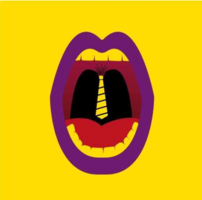O desenho na oficina: uma reflexão sobre o processo pedagógico na formação de desenhistas
A dissertação investiga as relações entre educação, design e formação pessoal em uma oficina de desenho no município do Rio de Janeiro. A investigação ocorreu mediante a observação de campo e entrevista com dez estudantes da oficina, abrangendo aspectos como o desenvolvimento da linguagem gráfica pictórica, as características pedagógicas da oficina e as diferenças entre o ensino formal e não-formal. O processo de análise das entrevistas propõe a correlação entre as dimensões do indivíduo, tempo pedagógico e linguagem gráfica que se relacionam entre si nas coordenadas dos interesses individuais, motivação, aprendizagem individualizada, tempo de aprendizagem, comunicação visual e percepção visual. A partir dos resultados, verificou-se a preponderância da linguagem gráfica verbal na formação escolar dos estudantes e como a oficina de desenho contribui para o desenvolvimento da linguagem gráfica pictórica. Identificou-se que a oficina favorece um ambiente de aprendizado flexível e individualizado, que valoriza os interesses individuais e respeito ao tempo de cada estudante. Observou-se que estas características são favorecidas pelo caráter não-formal de ensino, uma vez que os processos de aprendizagem não são conformados pelo currículo, pelos prazos e pela impessoalidade que marca o ensino formal. A partir das características observadas, discute-se a importância da autonomia e afetividade como elementos intrínsecos e não externos ao processo educacional. Ao fim, são tecidas considerações sobre o papel da linguagem gráfica pictórica para o desenvolvimento do pensamento projetual, como também para a formação de professores.
The dissertation investigates the relationship between education, design, and personal formation in a drawing workshop in the city of Rio de Janeiro. The investigation took place through field observation and interviews with ten students from the workshop, covering aspects such as the development of pictorial graphic language, the pedagogical characteristics of the workshop, and the differences between formal and non-formal education. The process of analysis of the interviews proposes the correlation between the dimensions of the individual, pedagogical time, and graphic language that relate to each other in the coordinates of individual interests, motivation, individualized learning, learning time, visual communication, and visual perception. From the results, it was verified the preponderance of verbal graphic language in students' school education and how the drawing workshop contributes to the development of pictorial graphic language. It was identified that the workshop favors a flexible and individualized learning environment, which values individual interests and respect for each student's time. It was observed that these characteristics are favored by the non-formal nature of teaching, as the learning processes are not shaped by the curriculum, the deadlines, and the impersonality that marks formal teaching. Based on the observed characteristics, the importance of autonomy and affectivity is discussed as intrinsic - not external - elements to the educational process. Finally, considerations are made regarding the role of pictorial graphic language for the development of design thinking, as well as for teachers’ formation.
A dissertação investiga as relações entre educação, design e formação pessoal em uma oficina de desenho no município do Rio de Janeiro. A investigação ocorreu mediante a observação de campo e entrevista com dez estudantes da oficina, abrangendo aspectos como o desenvolvimento da linguagem gráfica pictórica, as características pedagógicas da oficina e as diferenças entre o ensino formal e não-formal. O processo de análise das entrevistas propõe a correlação entre as dimensões do indivíduo, tempo pedagógico e linguagem gráfica que se relacionam entre si nas coordenadas dos interesses individuais, motivação, aprendizagem individualizada, tempo de aprendizagem, comunicação visual e percepção visual. A partir dos resultados, verificou-se a preponderância da linguagem gráfica verbal na formação escolar dos estudantes e como a oficina de desenho contribui para o desenvolvimento da linguagem gráfica pictórica. Identificou-se que a oficina favorece um ambiente de aprendizado flexível e individualizado, que valoriza os interesses individuais e respeito ao tempo de cada estudante. Observou-se que estas características são favorecidas pelo caráter não-formal de ensino, uma vez que os processos de aprendizagem não são conformados pelo currículo, pelos prazos e pela impessoalidade que marca o ensino formal. A partir das características observadas, discute-se a importância da autonomia e afetividade como elementos intrínsecos e não externos ao processo educacional. Ao fim, são tecidas considerações sobre o papel da linguagem gráfica pictórica para o desenvolvimento do pensamento projetual, como também para a formação de professores.
